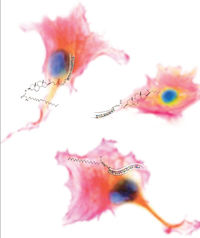Ernst & Young Global Pharmaceutical Report Calls for New Approaches to Address Big Pharma's Challenges
Global Pharmaceutical Report 2004
Advertisement
Pharmaceutical companies will have to strive harder to juggle successfully the conflicting demands they encounter in the global health sciences market, according to a new report titled, Progressions: Global Pharmaceutical Report 2004, released by Ernst & Young.
"We see the pharmaceutical sector navigating an increasingly complex global environment driven by competing market and consumer pressures, regulatory changes, and a constant need for life-saving innovations, many of which we outline in Progressions," said Donn Szaro, Global Health Sciences Director, Ernst & Young.
In spite of a concerted effort by the industry to improve perceptions by demonstrating the benefits of pharmaceutical products, few stakeholder groups appear satisfied. Wall Street remains jittery; the public and payors perceive the price of drugs as too high, and scrutiny over regulatory compliance continues to increase.
R&D productivity is under pressure, and the introduction of innovative drugs has slowed in recent years. Improvements in early stage pipelines are, however, on the horizon, and companies have made progress allaying international tension over access to certain essential medicines in developing countries. Nevertheless pharma is a convenient target for policymakers and the public in the U.S. and abroad.
In the Report, Ernst & Young's senior Pharmaceutical Practice Leader, Blake Devitt, cautions that the industry itself must take the lead in addressing the situation - particularly the disparity in drug prices between the U.S. and other developed nations - or political pressure for lower prices might make government price controls and reimportation inevitable. Recent expansion of the U.S. market under the Medicare Modernization Act is likely to accelerate pricing pressures throughout the industry globally.
"Rather than merely continuing to oppose price control and reimportation initiatives at the certain risk of consumer backlash, the U.S. pharmaceutical industry is challenged to take the lead in a fresh two-part approach, one that is coordinated and future oriented. First, it must address drug prices and geographic price discrepancies. Second, the industry must communicate more effectively with all stakeholders to re-establish its credibility in the health care arena."
Ernst & Young's new Pharmaceutical Practice Leader, Kathy Smith, asks whether pharmaceutical company executives are doing enough to emphasize their own risk management and compliance efforts.
"For most pharma companies, where innovation, manufacturing, and commercialization are natural points of focus, fostering a culture of risk management and compliance to the formula can only make the industry stronger. Furthermore, a strong culture of compliance goes a long way towards strengthening the public's trust in the industry."
Global Perspective
Alfred Mueller, Health Sciences Practice Leader of Ernst & Young Germany, and Siegfried Bialojan, the German firm's Pharmaceutical Practice Leader, point out in the Report that even in countries considered innovation friendly, such as the U.S., policy dynamics can change rapidly either to improve or erode incentives for innovation.
"Many companies are confronted by a value crisis as they try to sustain a business model based on high costs of manufacturing, R&D, marketing and sales, increasing regulatory scrutiny and reimbursement pressures. Countries that can combine lower cost manufacturing with adequate regulatory protection of intellectual property are well positioned to attract large pharmaceutical companies. India is a prime example," they say.
Institutions such as the World Trade Organization and the World Health Organization play an increasingly important role in shaping the pharmaceutical industry on a global, regional, and domestic level. The Report relates the perspectives of senior policymakers in the U.S. and India on the impact of these supra-national organizations.
To help the industry and its stakeholders balance the policies that drive innovation with clearly positive contributions to society, Ernst &Young has developed a Pillars of Innovation framework as an assessment guide. This framework can help decision-makers in both the public and private sectors determine the appropriate policy mix to enhance an innovative environment and to drive better health outcomes and stronger economic growth.
























































